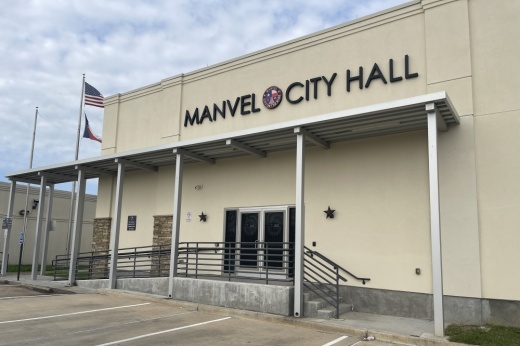However, city officials said they are concerned about the traffic that could result from the operation.
Long story short
At its May 5 meeting, City Council unanimously approved a contract with Houston-based Sprint Sand and Clay that will see the company excavate the sand out of Akery Lake off Jordan Street. Being a seller of sand, Sprint will pay the city for the sand they excavate and sell it.
The contract calls for Sprint to pay Manvel $5,000 per month for each month it excavates, as well as $1 for every cubic yard of sand removed, City Manager Dan Johnson said at the meeting.
Johnson estimates there is around 4 million yards of tight materials at the site, which those with the company have previously estimated could take up to 10 years to excavate.
The deal could result in Manvel making around $5.6 million for the time the site is rented and for the materials excavated, according to city documents.
Before work can begin, the contract will have to be finalized, city officials said. Mayor Dan Davis said May 7 the timeline on that is to be determined.
Diving in deeper
The city originally paid $2.5 million in 2019 for the 117-acre piece of land, Davis said, with the goal of eventually turning it into a detention pond and park land. This deal will help recoup the cost, as well as fund future upgrades at the site. However, where any surplus money goes will need to be considered at a future date.
Johnson said this kind of deal “hasn’t been done before” in Manvel, and city officials’ research found it wasn’t common in other areas either.
“When we started looking into it further, it was hard to find anybody else who had put together a specific contract like this,” Johnson said.
That, paired with just one bidder for the project in Sprint, caused concern from some City Council members. Council member Crystal Sarmiento, for example, questioned how great of a deal this was given that no other companies showed interest, despite plenty of companies within the industry being nearby.
Johnson said the city spoke with other companies for the project and their responses were more tied to either not having the capacity for such an operation, or saying it wasn’t feasible for them to carry out without charging the city.
“Nobody just said ‘Hey, this was a horrible project and we don’t want it,’” Johnson said. “There were a myriad of different reasons [for the lone bid].”
The impact
How the roads could be affected by large trucks driving in and out of the area, as well as how that could affect traffic, were concerns brought up as well.
Johnson said Sprint could either access the site using Jordan Street or Masters Road, but a traffic plan would need to be agreed upon before the contract becomes official. He also said officials can include in the contract that Sprint is responsible for keeping the roads passable, as a few council members brought up concerns over the wear and tear the trucks could cause over the course of several years.
Sprint Vice President Matt Strickland said at the meeting the number of loads being moved per day could range from 50 to 400.
Davis said some things may need to be adjusted road wise, including a possible stop sign nearby, a difficult turn being addressed at Highway 6 and finding routes that minimize how often trucks are driving through school zones.
What else?
Sprint maintains and occupies around 30 sand pits across the Greater Houston area, Strickland said at the meeting.





